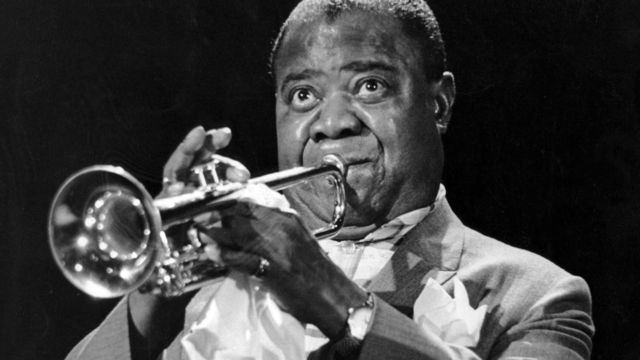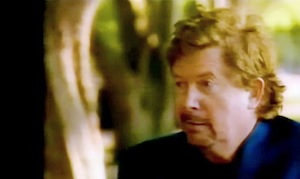A True Account of an Imaginative Life
Tom Robbins
(Ecco)
 Tom Robbins is an aging hippy best known for his early novels Another Roadside Attraction, Even Cowgirls Get the Blues, and Still Life with Woodpecker. He started his writing life in 1960 at the Richmond Times-Dispatch, a newspaper he tells us that had a readership "so conservative it considered Unitarians a satanic cult and the consumption of Russian dressing an act of treason." His job there was framing headlines, "a word game of sorts that vaguely resembles playing Scrabble." He also edited syndicated columns, including Earl Wilson's celebrity gossip column.
Tom Robbins is an aging hippy best known for his early novels Another Roadside Attraction, Even Cowgirls Get the Blues, and Still Life with Woodpecker. He started his writing life in 1960 at the Richmond Times-Dispatch, a newspaper he tells us that had a readership "so conservative it considered Unitarians a satanic cult and the consumption of Russian dressing an act of treason." His job there was framing headlines, "a word game of sorts that vaguely resembles playing Scrabble." He also edited syndicated columns, including Earl Wilson's celebrity gossip column.Part of his work was to select photographs to go along with the column, and when Wilson mentioned the great Black musician Louis Armstrong, Robbins included a picture of him. Next day, he was called to the managing editor's office and chastised ("there had been a lot of grumbling from the readers about the picture.") This was still the mid-1950s American South.
Not long after, Wilson mentioned the singer Pearl Bailey "and I decided to test the waters." After her photograph ran,
the T-D switchboard lit up like the diamond counter at a Dubai convenience store ... Some subscribers complained that upon seeing Pearl Bailey's picture they'd been unable to finish their breakfast, and despite being on the hot seat, I had to smile at the thought of outraged readers cursing the newspaper and shoving aside their uneaten flapjacks, only to glance up to see a big mammy in a do-rag checking them out from a box of Aunt Jemima's pancake mix
Within a month, the Wilson's column had some gossip about Sammy Davis, Jr. and "I got up from my seat at the copy desk, crossed the newsroom to the managing editor's office and gave two weeks' notice."
I returned to my post and proceeded to make certain that the ultra-uppity face to Sammy Davis Jr. appeared in every edition of the next morning's Times-Dispatch.
§ § § Robbins is a not-so-secret anarchist. As he says of one of his earliest girl friends, "While I didn't share Mary Lou's devilish glee in fostering confusion, I must confess that I've long tended to regard the interruption of complacency as a kind of public service." One of his earliest memories is just such an "interruption of complacency."
He and a friend (they were both seven or eight) lived in the town of Blowing Rock, North Carolina. They were broke, so they decided to rob the Northwestern State Bank downtown. They ran in the bank with their cap pistols, pointed them at the teller, and demanded "a lot of money."
If nothing else, this story gives a pungent sense of those gentle times vs. our own. They got run out of the bank, and when they got home, were chastised --- given toast and milk, ordered to bed. But just think of this make-believe robbery being acted out today at Chase or Bank of America. The toy guns looked real; we live in a world where the streets are lined with fear; in 2014 America the two of them possibly would have been shot. They certainly would have been handcuffed, threatened with imprisonment. And the two of them would be subjected to something almost as bad: a year or two of enforced "counseling" with unsmiling social workers under the supervision of the state. Not only for them, but most probably, by judicial fiat, the whole family.
Robbins spent part of his early twenties in the U. S. Air Force in Korea, as a meteorologist. His delight at being in a strange country is not unlike what all of us feel when we finally overcome our fear of adventure and move into the culture of another land. These are the streets of Taegu, Korea, in 1953:
My nose, even my eyes, filled with smoke from hibachi crocks, and with the sweet-sour redolence of unidentifiable spices, lotions, tonics, oils, dyes, and bodily effluvia --- strange smells to complement the strange language whose stick-figure letters jitterbugged on wooden and paper signs in every direction and whose intonations burst in the air around me like invisible cannonades.
§ § § Robbins is a good enough writer --- he's been doing it for over fifty years --- but he is also given to the overwrought. This is a thunderstorm in the farm country of Virginia:
The pale blue sky broke out in bruises, dark tanks of cumulus came rolling in, bucking and heaving like a Russian rodeo. Claws of lightning ripped a turbid bodice, thunder neighed like all the czar's horses.
"Claws of lightning ripped a turbid bodice?"
Still, he can be pretty funny. His discussion of kimchi --- "the national condiment of Korea," is terrific. Vide, "after one has eaten kimchi, one's breath could run a train."Robbins also has the ability to generate a fair amount of ire.
However, he has been, over the years, accused of a certain macho attitude towards women, and I imagine that Tibetan Peach Pie will, again, evoke a few tart responses. When Robbins is invited to a party that he wants to avoid, Susan --- his then wife --- disagrees. "She pestered, cajoled, and finally --- as some women do so effectively --- loosened my resolve with the vaginal wrench." "Wrench," "her treasure," "her salty peach," "her rosy aperture," "her nether diadem" --- these are some of the rather unpleasant metaphors that you and I will have to put up with if we go all the way through Tibetan Peach Pie.
Robbins is even more feckless when he chortles over his bought-and-paid-for love-life when he was on duty in South Korea. He casually announces different things he did at night "when I wasn't on the futon of some cute bargirl..." There's no question of what hardships may have forced her into servicing the needs of American soldiers in Taegu.
Robbins also seems rather intrigued by his fixation on women as oversexed; even more so, apparently, when they are around him. He tells us that when he was being interviewed by Terry Gross on NPR: "She seemed incredulous if not outright indignant when she asked if I really believed that women are more interested in sex than men are, as I'd had a character say in my novel Skinny Legs and All."
I had to leave this memoir a little less than half-way through, even though it's fun writing, albeit a little frothy. The sexism does jar one, as do the non-stop plugs for his novels (I counted ten such before page 178 ... where I finally abandoned ship). These look-at-me asides do not present us with a writer who has all that much faith in the importance of his own words, and his suggestion that his writing style could be favorably compared to the film-making genius of Françoise Truffaut is just plain silly.
That was what finally did me in as did the back-flap photograph of the author. Thomas Eugene Robbins was born in 1932 ... and if that shot of him --- as opposed to the one below --- is a recent take, at age eighty-one, I'll eat it.
--- Pamela Wylie
